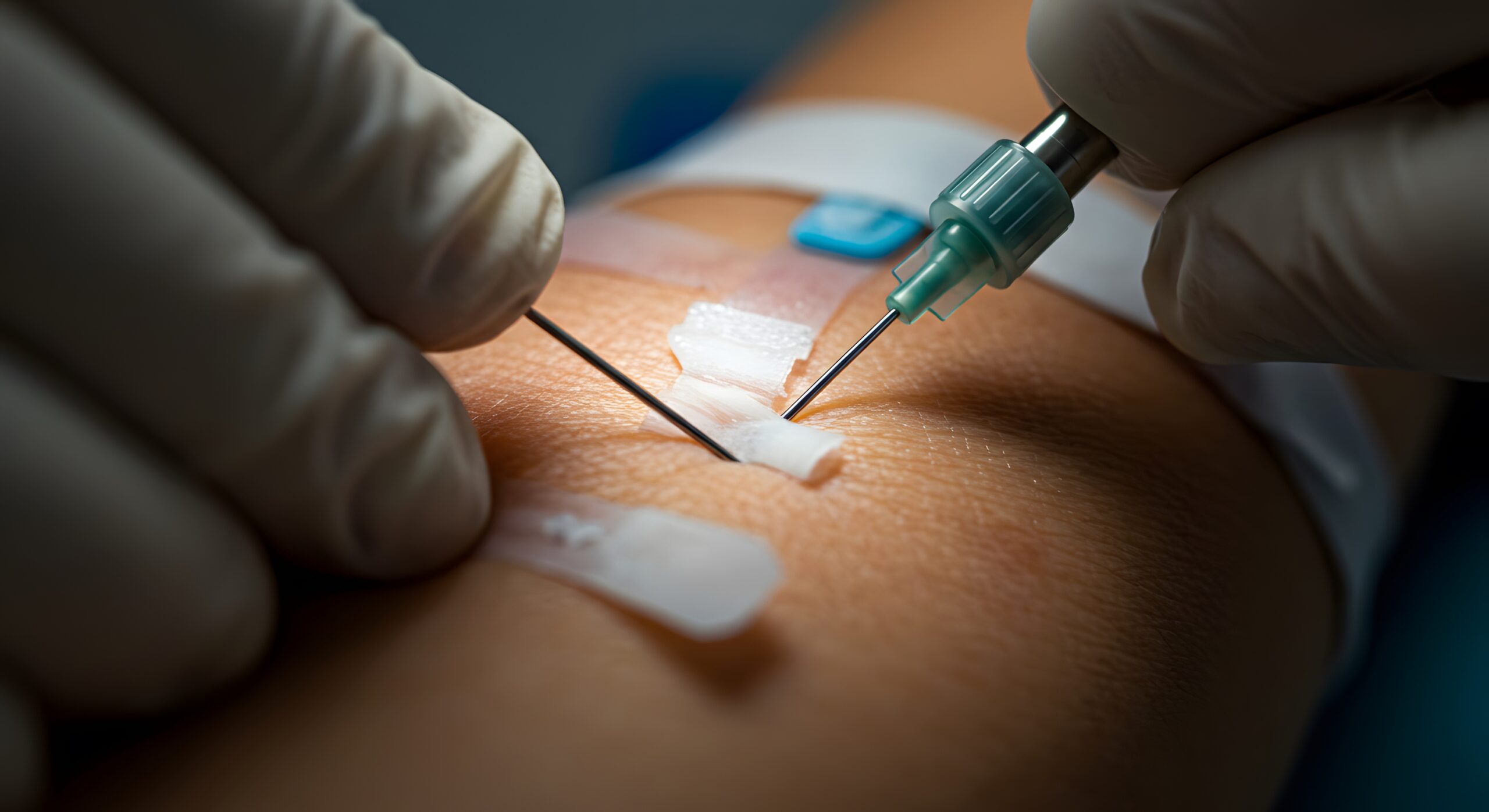Health screenings are a vital step in maintaining your well-being, offering insights into your body’s current state and potential health risks. However, understanding the numbers, charts, and medical jargon in your test results can feel overwhelming. This guide will help you decode your health screening results with confidence, empowering you to take informed steps toward better health.
Whether it’s understanding cholesterol levels, blood pressure readings, or other key metrics, we’ll break it down for you. At Mediway Medical Centre, we’re here to ensure you’re not just screened but also supported every step of the way.
What Is Health Screening and Why Does It Matter?
Health screening is like taking your car for regular servicing—you’re checking everything is running smoothly before problems arise. These tests help detect potential health issues early, when they’re most treatable.

At Mediway Medical Centre, I’ve seen how early detection can completely change a patient’s health trajectory. A simple blood test that reveals elevated cholesterol levels can prevent a heart attack years down the line. That’s the power of preventive care!
Living in Singapore, we’re fortunate to have access to excellent healthcare facilities. However, our fast-paced lifestyle and work demands mean we often neglect regular health check-ups. That’s why I always encourage my patients to view health screening as an investment in their future, not just a requirement for work permits or insurance.
Types of Health Screening Tests at Mediway Medical Centre
Let me walk you through the most common tests we perform and what they tell us about your health.
Blood Tests: Your Body’s Report Card

Blood tests are like getting a comprehensive report card for your body. Here are the key markers I look at:
Lipid Panel
This test measures different types of fats in your blood, including cholesterol levels. When I review these results with patients, I explain that we’re looking at your risk of heart disease. The lipid panel includes:
- Total cholesterol
- LDL (the “bad” cholesterol)
- HDL (the “good” cholesterol)
- Triglycerides
Blood Glucose
This test evaluates how well your body processes sugar by measuring blood glucose levels. It helps assess your risk of diabetes, detect metabolic issues, and guide recommendations for maintaining good health.
Liver Function Tests
These include ALT (alanine aminotransferase) and AST (aspartate aminotransferase), which are enzymes that indicate how well your liver is working. I also look at alkaline phosphatase levels, which can reveal liver or bone problems.
Imaging Tests: Seeing Beyond the Surface

Imaging tests give us a visual picture of what’s happening inside your body. At Mediway Medical Centre, we use advanced equipment to ensure clear, accurate images. Common imaging tests include:
- Chest X-rays
- Ultrasounds
- ECGs for heart health
These tests help detect issues that blood work might miss, providing a complete picture of your health status.
Specialized Tests
Depending on your age, gender, and risk factors, I might recommend specialized tests such as:
- Cancer markers
- Hormone levels
- Vitamin deficiencies
- Heart health assessments
Preparing for Your Health Screening
Proper preparation ensures accurate results. Here’s what I tell my patients at Mediway Medical Centre:

Pre-Screening Guidelines
Health screenings are vital for early detection, prevention, and maintaining overall well-being in every stage.
No Fasting Requirements
Fasting before a health screening can be inconvenient, so our test screenings don’t require it. Our advanced diagnostics ensure accurate results without fasting.
Medications
Continue taking your regular medications unless I advise otherwise. Certain medications can affect test results, so be sure to inform me about all medications and supplements you’re taking.
What to Bring
- Your NRIC or passport
- Previous medical records
- List of current medications
- Any relevant family medical history
Understanding Your Key Health Metrics
Now, let’s dive into interpreting your results. I’ll break down the most important metrics in simple terms.

Blood Pressure Readings
Blood pressure consists of two numbers:
- Systolic (top number): pressure when your heart beats
- Diastolic (bottom number): pressure when your heart rests
Normal blood pressure is typically below 120/80 mmHg. Higher readings may indicate increased risk of heart disease and stroke.
Cholesterol Levels and Heart Health
Your lipid panel reveals crucial information about your risk of heart disease. Here’s how I interpret these numbers:
Total Cholesterol: Below 200 mg/dL is desirable
LDL Cholesterol: Below 100 mg/dL is optimal
HDL Cholesterol: Above 40 mg/dL for men, above 50 mg/dL for women
Triglycerides: Below 150 mg/dL is normal
When these numbers are elevated, it doesn’t mean you’ll definitely develop heart disease, but it does mean we need to take action to reduce your risk.
Glucose Levels
Blood glucose tells us how well your body manages sugar:
- Normal: Below 100 mg/dL
- Prediabetes: 100-125 mg/dL
- Diabetes: 126 mg/dL or higher
Liver Function Markers
ALT and AST are enzymes that leak into your bloodstream when liver cells are damaged. Normal ranges are:
- ALT: 7-56 units per liter
- AST: 5-40 units per liter
Alkaline phosphatase levels help assess liver and bone health, with normal ranges typically between 30-130 units per liter.
When Test Results Are Abnormal: Don’t Panic
I often see patients become anxious when they hear “abnormal results.” Let me reassure you—abnormal doesn’t always mean dangerous. Many factors can affect test results:

Common Causes of Abnormal Results
- Recent illness or stress
- Medications
- Dietary choices before testing
- Exercise habits
- Sleep patterns
- Hydration levels
What Happens Next
When I review abnormal results with patients at Mediway Medical Centre, we follow a systematic approach:
- Repeat Testing: Sometimes we need to confirm results with repeat tests
- Additional Tests: We might need more specific tests to understand the issue
- Lifestyle Modifications: Often, simple changes can improve results
- Medical Treatment: When necessary, we’ll discuss treatment options
The Mediway Medical Centre Advantage
What sets us apart is our commitment to patient education and personalized care. When you receive your results, you’re not just getting numbers—you’re getting a comprehensive explanation of what they mean for your health.

Our Comprehensive Approach
Detailed Consultations: I take time to explain every result, answer your questions, and discuss next steps.
Follow-up Care: We don’t just give you results and send you away. We provide ongoing support and monitoring.
Holistic Health Assessment: We look at your overall health picture, not just individual test results.
State-of-the-Art Facilities
Our clinic uses advanced diagnostic equipment to ensure accurate results. We’ve invested in technology that provides reliable, precise measurements for all our tests.
Taking Action Based on Your Results
Understanding your results is only the first step. Here’s how to use this information to improve your health:
Normal Results Means
Even when results are normal, maintain healthy habits:
- Continue regular exercise
- Eat a balanced diet
- Get adequate sleep
- Manage stress
- Schedule regular follow-ups
Abnormal Results Means
Don’t ignore concerning results. Work with me to:
- Understand the underlying causes
- Develop a treatment plan
- Make necessary lifestyle changes
- Monitor progress with follow-up tests
Your Health Journey Starts Here
Regular health screenings or lab tests are one of the best investments in your future. At Mediway Medical Centre, we’re here to make the process smooth and informative.
Remember, your results don’t define your health—they’re tools to help us improve your well-being. Whether you’re here for a work permit medical, a full health assessment, or to check important metrics like blood cells, red blood cell count, white blood cell count, or kidney function, you’re taking an important step toward better health.
Think of your screening results as a starting point for your wellness journey. Each result is a chance to learn about your body and make informed health decisions.
If you have questions about your results—whether it’s related to blood count, kidney health, or anything else—or want to schedule a screening, reach out to us. At Mediway Medical Centre, your health is our priority, and we’re here to support you every step of the way.
Your health is your greatest asset—let’s protect it together!!









